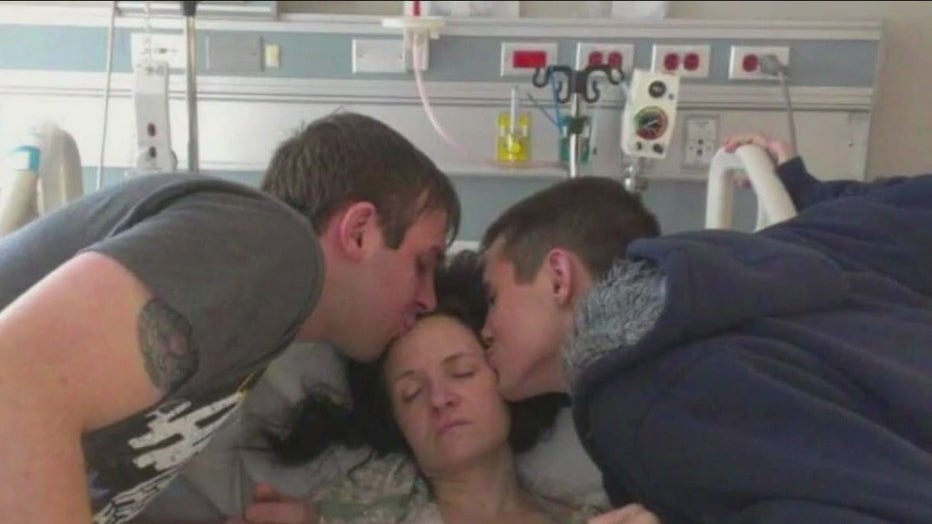Austin woman in remission after Stage 3A colon cancer diagnosis
Colon cancer in remission for Austin woman
According to the American Cancer Society, colorectal cancer is the second most common cause of cancer deaths for men and women combined. But it’s also highly treatable.
AUSTIN, Texas - March is Colorectal Cancer Awareness Month. U.S. health officials point to a growing number of Americans, under the age of 50, getting the diagnosis.
An Austin woman knows this well, after being diagnosed with colon cancer in her late 30s.
"It was devastating, it was absolutely devastating," said Ann Storey.
She was 39 years old in November 2012, when she learned she had Stage 3-A colon cancer. About two months before that, Storey noticed blood in her stool. So, she went to her doctor who recommended a colonoscopy. During the procedure, several polyps were removed.
"They ended up finding cells outside the colon in the areas where they removed polyps, which led to surgeries, having a colon resection, chemotherapy, radiation, the whole nine yards," she explained.
Less than a year later, Storey was in remission. She said she’s always had a healthy lifestyle and wasn’t aware of any risk factors. But, her doctors tell her she’s a "polyp maker," so colonoscopies have become a routine part of Storey’s health care.
"I have to have polyps removed every single time," she said. "Right now, I was at every four years - but, he’s (doctor) bumped me back down to every three years that I have to get my colonoscopy."

Ann Storey was 39 years old in November 2012, when she learned she had Stage 3-A colon cancer.
MORE HEALTHBEAT STORIES
- Breast Cancer Awareness Month: Signs, symptoms, risk factors and prevention
- Does salt increase risk of AFib?
- Austin cardiologist speaks on extreme heat impact on heart health
But, that is the purpose of a colonoscopy, to look for and remove any polyps before they can turn cancerous.
According to the American Cancer Society, colorectal cancer is the second most common cause of cancer deaths for men and women combined. But, it’s also highly treatable.
When found in its earliest stages, the five-year survival rate is 90 percent. That is why doctors urge anyone with symptoms, and those of average risk who turn 45, to get screened.
"I did everything I could to avoid it," said Storey. "But, it’s what ultimately saved my life. And, it’s what’s continued to ensure that I am here today. This can affect anybody, at any time. Trust your body. If it’s trying to tell you something, it doesn’t hurt to be screened."
To help get the word out, Storey is this year’s event coordinator for the Colon Cancer Coalition’s 15th annual "Get Your Rear in Gear" 5K run/walk at Camp Mabry on Saturday, Feb. 25 at 9 a.m.
All money raised stays local, and is used to fund screenings and research. To learn more, register or donate, click here.

